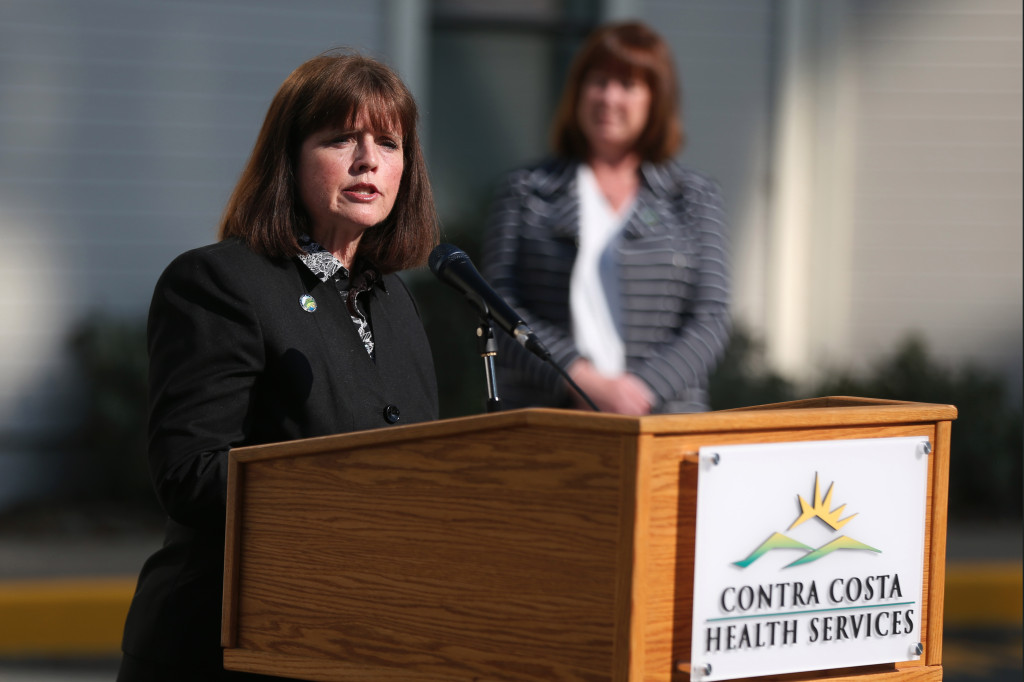Contra Costa County renters have more protection from losing their homes and business space after the Board of Supervisors Tuesday approved an urgency ordinance to suspend evictions of residential and commercial tenants affected by the COVID-19 pandemic and placed a moratorium on rent increases.
The ordinance — which follows eviction moratoriums already passed by San Francisco, San Mateo, Alameda and Santa Clara counties, as well as cities including Oakland, Concord, Richmond Pittsburg and Antioch — bars landlords and sublessors from terminating a renter’s tenancy for failing to pay rent if the tenant shows that they have lost income or have to pay “substantial” medical expenses related to the coronavirus pandemic.
Tenants must provide documentation to prove their loss of income or out-of-pocket medical expenses, according to the ordinance. Supervisors said a form — like one Santa Clara County has created — could quickly be made available on the county website for renters to use, but other documentation could include paystubs, bank statements, or a notice from an employer.
The ordinance also prevents property owners for terminating tenancies for any reason that is not based on “an alleged fault of the tenant,” except if an owner or a member of the owner’s family wants to move into the unit, or if the eviction is necessary for protecting the health and safety of the owner or another tenant.
For those impacted by COVID-19, landlords cannot collect late fees for 120 days after the ordinance expires. Those tenants also have those 120 days to pay back the rent they owe without facing eviction.
There are some other protections for renters throughout the state.
On April 5, the Judicial Council of California adopted an emergency court rule that effectively halted residential and commercial evictions statewide until 90 days after the governor lifts the COVID-19 state of emergency. The order prohibits a court from proceeding with eviction cases unless they’re deemed necessary to protect public health and safety. Also, Gov. Gavin Newsom issued an executive order prohibiting landlords from evicting tenants who can’t pay because of COVID-19 through May 31, 2020.
But renters and tenant advocates have asked Contra Costa for weeks to go further in offering them protections, and dozens spoke at Tuesday’s meeting praising the ordinance but urging supervisors to give them a longer grace period for paying their rent debt to landlords.
“It is important for you to increase grace period to at least a year or 120 days per month (of lost income),” wrote Dolores Ramos, a county resident and single mother, in a letter to the board read aloud Tuesday.
With her work hours reduced to part-time, she told the board, it is difficult to come up with the funds to pay bills, including rent, and the requirements to provide notice and documentation to landlords is burdensome.
Many tenants fear that come the end of the sheltering order, the requirement to pay back the rent in just 120 days will be too much for them to bear.
While Supervisor John Gioia urged for the grace period to last six months, the full board eventually agreed to stick with 120 days and return to the issue if the sheltering order is extended.
The impact of the shutdown on renters has been widespread. In a letter to the board last week, Contra Costa County Employment and Human Services Department director Kathy Gallagher detailed the impact of the shutdown on people in the county. The Contra Costa Crisis Center fielded a 171% increase in calls related to rental assistance and evictions last month compared to March 2019, and about 60 percent of those calls involved landlords demanding payment nownters.
And some property owners wrote to the board Tuesday to address the financial hardship they say they face by losing income from their rental properties.
The supervisors said they want to explore ways to help landlords with mortgage relief or provide information about small business loans but did not discuss specific solutions.
“I do know people who have put their retirement into (property) ownership. So they’re reliant on rental and lease money for that income,” said District 5 Supervisor Federal Glover.
Gioia urged his supervisors to advocate for help from the federal government for small businesses and individuals.
The California Apartment Associaiton — which opposed the Judicil Council’s move to halt eviction proceedings during the crisis — has sponsored a bill that would have the state of California pay up to 80 percent of unpaid rent attributable to COVID-19 impacts.


















